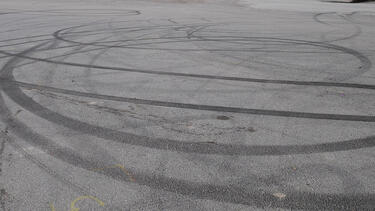Tesla’s Turbulence Musk Be Explained
Great leaders set audacious goals. They also have to meet the expectations they create—or better yet exceed them. Yale’s Jeffrey Sonnenfeld argues that Elon Musk’s recent performance demonstrates that he doesn’t get the “meeting expectations” half of that formula.

Santeri Viinamäki
This article originally appeared in Chief Executive magazine.
Henry Ford once warned, “You can’t build a reputation on what you are going to do.” Fellow carmaker Elon Musk reminds us that Ford was partially right. This week, Musk showed us that while you can’t build a positive legacy on dreams you can actually damage a reputation by trying to sell unrealized forecasts.
Sure, Ford, like Musk, Thomas Edison, and Steve Jobs, was a relentless self-promoter—but like Edison and Jobs, he didn’t just sell but he delivered and even beat the expectations he set. Musk, by contrast, has forecasts which border on sheer fantasy.
Consider what we just learned this week:
• Musk lost $702 million after assuring us just a few months ago that Tesla was going to be profitable from then onward with losses behind them.
• His revenues fell 37% despite rosy recent forecasts.
• Demand for the Model S luxury sedans and Model X SUVS have fallen by a stunning 56%—after three price cuts.
• Cash has fallen by 40% with only $2.2 billion left, less than what is required to build the new factory he promises.
• On the same call where he continued to dismiss the need for new capital, he admitted it may be the time to seek it.
• Two months ago he forecast 500,000 cars would be built this year. Now he’s dropped that by 25% to 400,000 cars.
• He spun spell-binding tales of a million fully autonomous vehicles for a fleet of taxis by next year.
• He announced a goal of launching an auto insurance company—on top of his leadership of Solar City, The Boring Company, SpaceX, and manufacturing appliances from flame throwers to silent leaf blowers.
Still, he could have done worse on his latest earnings call. The good news:
• He showed and was not noticeably stoned.
• He didn’t attack analysts or media.
• He didn’t attack heroic Navy SEALs.
• He didn’t disparage the SEC as the Short-sellers Enrichment Commission.
• He didn’t mock the governance oversight of his own board.
Musk complained about the penalty of volatility they suffer as a public company. Surely well-managed publicly-owned firms like PepsiCo, Microsoft, Honeywell, United Technologies, UPS, Disney, and Merck do not suffer such volatility.
Can’t he see that Tesla’s volatility is due to its leadership—not its ownership?
“In our 20 years of covering tech stocks on the Street we view this quarter as one of the top debacles we have ever seen,” said Wedbuch analyst Daniel Ives, “while Musk & Co., in an episode out of the Twilight Zone, act as if demand and profitability will magically return to the Tesla story.”
On top of this, Tesla suffers the worst flight of talent of any major tech company with more than 50 top executives fleeing recently, including the CFO and latest general counsel—with the last one serving less than two months in the job.
Musk’s violation of his consent decree with the SEC in December with false production claims in February follows his 60 Minutes TV appearance mocking the SEC and defying the agreement to have his forecasts cleared by a board committee in the aftermath of his August fraudulent pronouncement that he has a deal to take the company private at $425 a share. The share price is now almost half that at $256.
Yes, this company, with its dreams of autonomous driving, still has a board on cruise control, despite thinning the board. Antonio Gracias, one of the departed, was one of the few reported to have tried to harness Musk’s reckless tweets.
Another of the dropped directors is Steve Jurvetson who’d been banned from the board meetings for two years due to personal conduct charges elsewhere—but still remained on the board. Now Solar City insider Brad Buss is also leaving. Meanwhile Musk’s brother Kimball and Oracle’s Larry Ellison—his friend and passionate defender—remain on the board.
It seems that Telsa’s CEO and board are taking Groucho Marx’s advice to heart: “The secret of life is honesty and fair dealing. If you can fake that, you’ve got it made.”